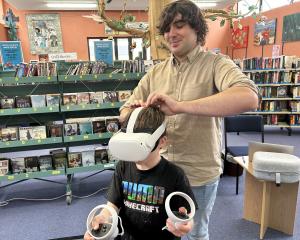The future of gaming is more than 60 years old.
Back in the 1950s, researchers started playing around with a technology that would allow them to store data in a form of memory that had no moving parts.
While the new tech was destined to be faster and more reliable than the giant discs used in today's popular hard drives, it also was more expensive.
Now, 60 years later, the price and performance of solid-state drives are beginning to show signs of hitting mainstream popularity.
Speaking at the recent Game Developers Conference, Intel, the world's largest chip maker, says it expects SSD technology to soon be in every laptop in the world.
While some of what Intel talked about could be viewed as self-serving, the company makes solid-state drives and said pairing it with its new Sandy Bridge processors will maximise the experience.
The demonstrations of the technology at work were hard to ignore.
The tech company hired developers Iron Galaxy Studios to research the impact SSD could have on future games.
David Lang, president of the Chicago-based company, said that they discovered that one of the biggest bottlenecks in modern computer gaming is the hard drive.
A high-end computer using the spinning disc of a hard drive to store a game's content is slowed down by its inability to get that information quickly.
This means games take longer to load, levels in games need to be smaller to reduce lag, and transitions through areas can start to visually chug.
Lang and his team created a virtual world packed with mountains, temples, deserts and arctic landscapes.
He then travelled through the landscape in the game, showing how effortlessly the solid-state drive was able to load the different areas, doing so without any lag.
Another example showed a wall in the same virtual world filled with 100 different video screens, each showing different videos.
They all ran seamlessly.
When loaded on a computer with a hard drive, the videos stuttered, froze and hiccupped.
Lang said the demo, designed by his team to "break" SSD's ability to stream information, barely stressed it.
"We need to rethink how we are going to make games moving forward," he said.
"You can make really compelling experiences for folks on SSD without a whole lot of new engineering."
Imagine, Lang said, a wide-open game like Grand Theft Auto on an SSD.
The worlds could be bigger, the way they look more detailed.
And Lang, whose company typically works on console games, believes that SSD will also be coming to the next generation of console, removing the size limitation created by disc-based games.
"We don't do PC development because I don't want to deal with the hassle," he said.
"If you're telling me there is a future and it's everyone with this new bar, and it's the low bar, and it's really freaking high, it gets me very excited.
"New kinds of games are going to be possible because of this. When you are not limited by [a hard drive] imagine what a company like Rockstar could do with their open world stuff? It's going to be awesome."












